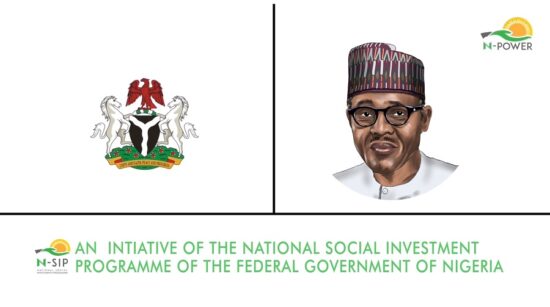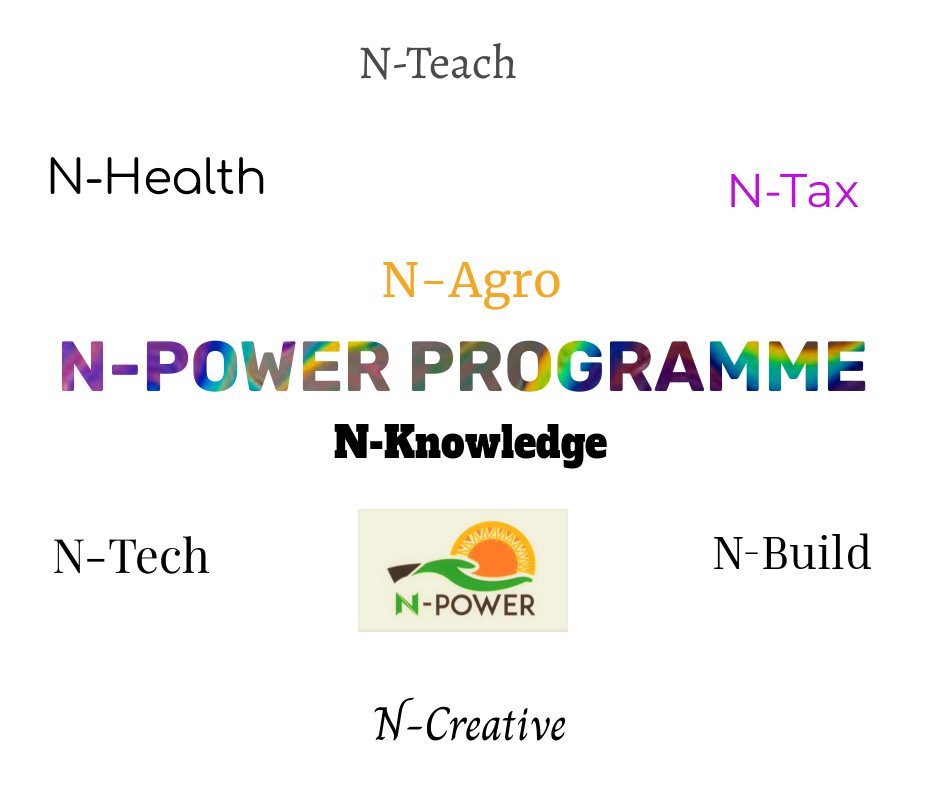N-Power, a youth empowerment programme designed by the administration of All Progressive Congress (APC) was launched in June 2016.
President Muhammadu Buhari announced in his Democracy Day speech on May 29, 2016, that his administration would take millions of Nigerian youths off the streets through N-Power Programme by creating jobs and opportunities for them.
It was an announcement that renewed the hope of millions of Nigerian youths who were roaming the streets.
They believed that Nigeria was going to work again. They were patiently waiting for the recruitment portal to open. It did open on June 8, 2016
By December 2016, the first batch of 200,000 beneficiaries was deployed across Nigeria. They all reported at their Places of Primary Assignment in January after the New Year holiday.
And before the end of January 2016, beneficiaries received credit alerts for December while their January stipend came in a few days after.
N-Power of 2021
Today, N-Power is a shadow of itself. The coordinator of the programme, the Ministry of Humanitarian Affairs, Disaster Management and Social Development, now owns beneficiaries of the N-Power for two or three months’ salaries.
Most times, the ministry would transfer its laxity when it comes to delays in the payment of monthly stipends to the Ministry of Finance and Budget.
Was N-Power created to increase social development? Yes. But how would unemployed persons who are owed months of salaries survive Nigeria’s harsh economic conditions?
At the time of publication, beneficiaries of Batch C, Stream 1 of the N-Power Programme were just receiving their first salary in 2022.
Was it created to deceive Nigerians?
How much are the government officials in charge of N-Power salaries getting from holding stipends for months?
Was N-Power created for the gains of government officials?
Many questions remained unanswered about alleged fraud in the operation of N-Power programme.
Is the presidency monitoring the progress of the programme or it’s just another political propaganda to deceive the world?
Buhari’s Plan Towards Reducing Unemployment
Recalled that Buhari had announced the creation National Social Investment Programme (NSIP) in 2016. The NSIP houses the following
- The N-Power
- The Conditional Cash Transfer (CCT)
- Government Enterprise and Empowerment Programme (GEEP)
- The Home Grown School Feeding Programme (HGSF)

NSIP was coordinated by the Office of Vice President between June 2016 till August 2019 when Buhari announced the creation of the Ministry of Humanitarian Affairs and moved NSIP including N-Power to the new ministry.
Programmes under N-Power on inception include graduate and non-graduate sections.
The graduate programme has the following:
- N-Teach
- N-Agric
- N-Health
- N-Community Education (it was merged with N-Power Teach)
- N-Power Tax
The non-graduate section includes:
- N-Build
- N-Creative
- N-Tech
- N-Knowledge was added in 2021
Piling Up Unpaid Backlog
On inception, it was designed to engage beneficiaries for two-year, but the first batch (2016) received stipend for almost three years.
In 2017 (second batch), 300, 000 youths were engaged for another two years.
But when the Ministry was warming for batch C in 2020, it announced that the N-Power Batch C would last for 12 months.
Out of the 12 months, eight months are almost gone, and the management of N-Power has only been able to clear five months.
On Friday, April 22, 2022, hundreds of N-Power Batch C, Stream 1 are still complaining of unpaid stipend for January. February salary isn’t on the table of the management of the programme.
One of the beneficiaries told InfomediaNG that many beneficiaries are yet to be paid in her local government areas.
“I don’t think they’re done sending out January stipends cause some people in my LG are yet to receive theirs, especially those using Union bank. So February’s not yet in view.”
Impact of N-Power
It is indisputable that the N-Power programme impacted the lives of 2016 and 2017 beneficiaries, qualified ones among them have been migrated to NEXIT entrepreneurship programme.
Some of them set up their small scale businesses through the savings from their NGN30,000 monthly stipend when there was timely payment.
The first batch in 2016 received working tools dubbed N-Power devices, each worth at least NGN70,000 at the time, gulping billions of naira.
Specifically, the federal government disclosed on July 19, 2019, that at least NGN279 billion had been expended on paying the salaries of the beneficiaries from December 2016 to June 2019.
It also disclosed some months ago that the FG spent NGN30 Billion on N-Power every month.
What’s happening to the N-Power Batch C, Stream 1 Salary?
How would the batch C start something meaningful with the NGN30K monthly salary when they are being owed by the authorities?
The recent delay in payment will hinder the programme from achieving its intended aim: to create opportunities.
The minister in charge of the programme Sadiya Umar Farouq should do better. She should charge heads of each unit of the NSIP to double up their effort for the programme to be one of the major legacies of the Buhari-led government.
She should direct the present head of N-Power to learn from the first coordinator of N-Power Mr Afolabi Imoukhuede
They should from Afolabi how he was able to successfully manage information, and payment of salaries when the NSIP was in the Office of The Vice President.
It will go a long way if beneficiaries’ salaries are released before the end of the month or unfailingly the first week of the following month.
Besides, how many Senators and Ministers are owed three months’ salaries even after their humongous estacodes every month?
Is this how the APC-led government plans to lift 100 million Nigerians out of poverty?
The N-Power deception must stop!



I am Ayeni Beatrice Yemisi, one of the npower beneficiary, I have not received my stipend from November to May. Please ma help me out. My identification NPWR/2020/004026433 and my NIN: 87965…… GTB Bank from Ado Ekiti. Thank you ma.